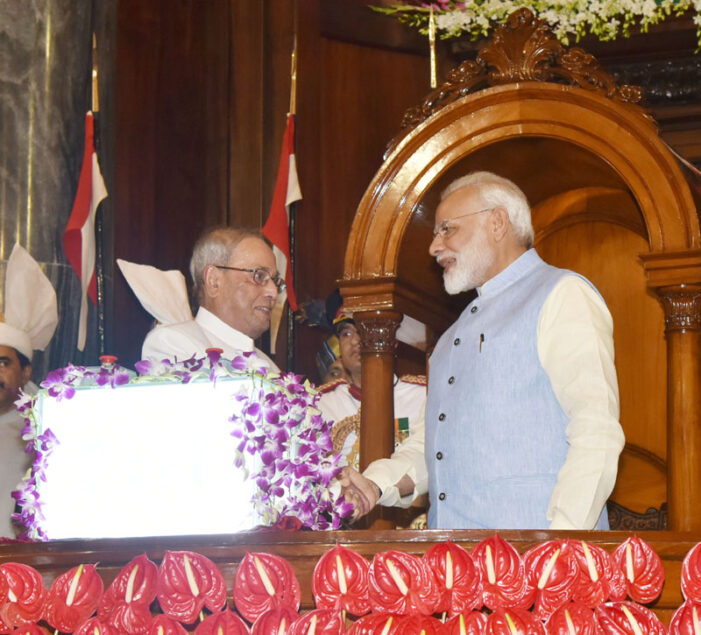India ushered in GST amid historic midnight session of Parliament, replicating the mid-night transfer of Independence from the British Raj on August 15, 1947. However, GST inauguration speaks volumes on the tax burden than power transfer.
President Pranab Mukherjee, Prime Minister Narendra Modi, and Finance Minister Arun Jaitley addressed the gathering, before the President and the Prime Minister pressed a button to mark the launch of GST, amid allegations that it would squarely burden the common man.
Prime Minister Narendra Modi described it as “Good and Simple Tax” which would ultimately benefit the people. He even quoted a shloka from the Rig Veda to describe the spirit of common goal, common determination, leading to mutual and shared benefit for the society. He said the day marks a decisive turning point, in determining the future course of the country.
He recalled that the Central Hall had been witness to several historic occasions in the past as well, including the first session of the Constituent Assembly, India’s independence, and the adoption of the Constitution, which have set the future course of action on power shift in India. He described GST is an example of Cooperative Federalism, another power shift from the states to centre in tax revenue and share.
Recalling the famous scientist Albert Einstein who said that income tax is the most difficult thing to understand in the world, he said that GST would ensure one nation, one tax and makes it simple. He noted that it would eliminate inordinate delay in movement of goods and services across the country and makes the modern tax administration far simple and curbs corruption.
Finance Minister Arun Jaitley said, “We have made sure that small traders and businessmen are out and the compliance burden on those with annual turnover of Rs 20 to Rs 75 lakh is lower through the composition scheme,” referring to criticism that the commonman and small traders will be the worst hit under the new GST regime.
The common man faces paying higher price for every purchase he makes when he buys daily needs like jam, cornflakes and hotel food bills. He pays higher when he uses shampoo in the morning, pays higher for life insurance, mobile bills and transportation tickets of all modes. The only visible carrot in the deal is biscuits, which are not good for health as vegetable oil is mostly used in manufacturing them.
He saves if he buys annually once products like shoes, garments, hair oil, cell phones, plastic kitchenware (not steel), pressure cooker, economy class air tickets among others. Once in five-year purchase of a car may cost less now after GST but still beyond the common man’s reach.
However, the impact would be felt in a month from now, while traders will have to make adjustments meanwhile. Last year, demonetisation had affected the country and this year the GST will burden the merchant community further. But there is no choice for the middle class, which gets the impact maximum every time the government ushers in something new.

